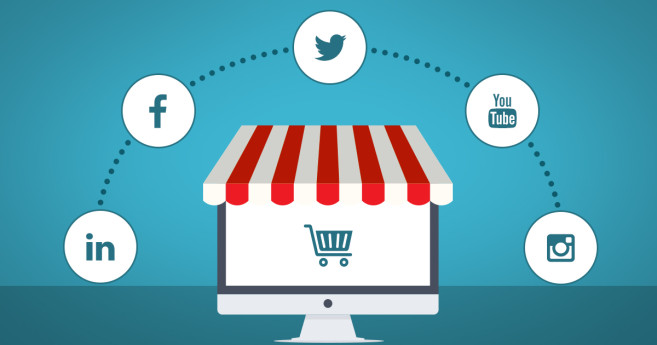Social Media influence E-Commerce

Social media has a significant influence on e-commerce, shaping consumer behavior, driving purchasing decisions, and providing new opportunities for businesses to engage with customers. Here's how social media influences e-commerce:
Product Discovery: Social media platforms serve as powerful discovery channels, where users can explore new products, brands, and trends through visual content, influencer recommendations, and user-generated content (UGC). Platforms like Instagram, Pinterest, and TikTok are particularly popular for product discovery, as users browse through images, videos, and curated collections to find inspiration and discover new products.
Brand Awareness and Engagement: E-commerce businesses use social media to build brand awareness, connect with their target audience, and foster engagement through organic posts, sponsored content, and interactive campaigns. By sharing compelling content, engaging with followers, and participating in conversations, businesses can strengthen their brand presence and establish meaningful relationships with customers.
Influencer Marketing: Influencer marketing has become a prominent strategy in e-commerce, with businesses collaborating with social media influencers to promote their products to their followers. Influencers leverage their authority, credibility, and reach to endorse products, create authentic content, and drive traffic to e-commerce websites, resulting in increased brand visibility and sales.
Shoppable Posts and Social Commerce: Social media platforms are increasingly integrating e-commerce features, such as shoppable posts, in-app checkout, and product tagging, to facilitate seamless shopping experiences directly within the platform. E-commerce businesses can leverage these features to showcase products, highlight promotions, and drive conversions without users having to leave the social media app.
User Reviews and Recommendations: Social media enables users to share their experiences, reviews, and recommendations with their networks, influencing purchasing decisions and building trust among potential customers. Positive user-generated content (UGC), customer testimonials, and social proof can help validate the quality and authenticity of products, encouraging others to make a purchase.
Customer Support and Engagement: Social media serves as a communication channel for customer support inquiries, feedback, and questions. E-commerce businesses can provide responsive and personalized customer service on social media, addressing user inquiries, resolving issues, and building loyalty by demonstrating their commitment to customer satisfaction.
Community Building and User-generated Content: E-commerce businesses can leverage social media to build communities around their brand, products, and values. By fostering engagement, encouraging user-generated content (UGC), and facilitating conversations among customers, businesses can create a sense of belonging and loyalty among their audience, driving repeat purchases and advocacy.
Targeted Advertising and Retargeting: Social media platforms offer sophisticated targeting capabilities that allow businesses to reach specific demographics, interests, and behaviors with personalized advertising campaigns. E-commerce businesses can leverage social media advertising to target potential customers based on their preferences, shopping behaviors, and past interactions, increasing the likelihood of conversion.
Overall, social media plays a multifaceted role in e-commerce, influencing various stages of the customer journey from product discovery and brand awareness to purchase consideration and post-purchase engagement. By leveraging social media effectively, e-commerce businesses can expand their reach, drive traffic to their websites, and cultivate meaningful relationships with customers, ultimately driving sales and growth.
Thank you,